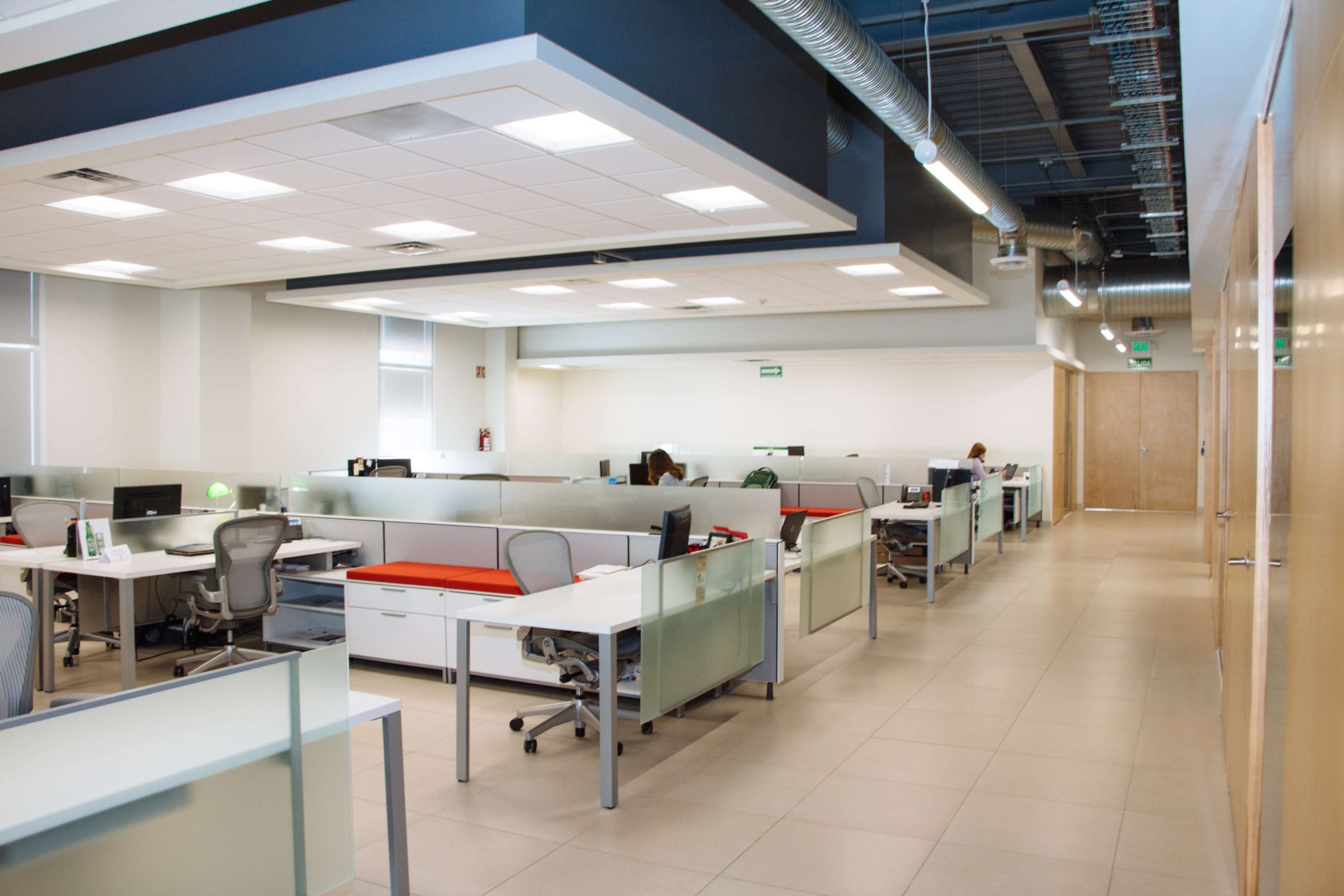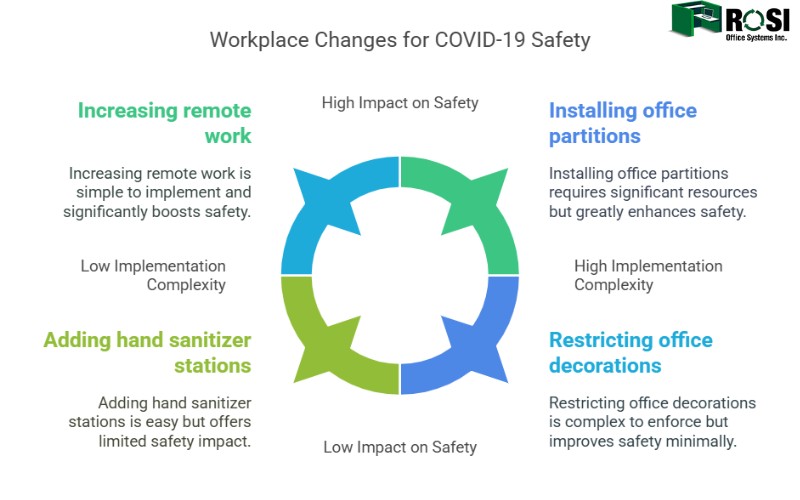
How COVID-19 Safety Could Change Your Workplace With Office Partitions and Other Furniture
Can introducing office demountable walls and other furniture help employees stay safe at work? With the threat of COVID-19 still strong in the U.S., many companies are making massive changes to seating arrangements, equipment accessibility, and company policies to keep their workforce from contracting the virus. As businesses make choices based on their resources, industry, and local ordinances, here are eight changes we may see in the workplace as employees return.
-
More Remote Work
The CDC recommends that employees who can work from home do so. This allows people who need access to the building or specialized equipment to come in with a lower risk of contracting the virus from coworkers. Therefore, many companies that shifted to at-home work may continue to do so, decreasing the number of people who are in the office at any one time. Those who must visit the office can then space themselves between cubicles to reduce the likelihood of contact.
-
Restrictions on Office Decorations
Many offices already have restrictions on decor, such as photos hung on office partitions, but these may become stricter as management considers the difficulties of disinfection. For example, plushies and other items made of fabric can be difficult to sanitize properly. In some cases, employees may not be able to bring items from home at all.
-
The Proliferation of Hand Sanitizer
Hand washing is one of the CDC’s top recommendations, but having employees constantly getting up can be problematic. One solution is to provide hand sanitizer. This can be as simple as issuing bottles to every employee or installing refillable dispensers around the office. Some employers may also provide cleaning wipes for use on keyboards, desks, and wall dividers to ensure surfaces are being cleaned throughout the day, not just when the janitorial staff comes in during the night.
-
Policies About Mask Wearing
Many of the hardest-hit locations already have orders requiring masks in public, but companies outside those jurisdictions may create similar policies. Preventing contact with respiratory droplets is crucial to stopping the spread of the coronavirus, so it makes sense that, where possible, companies may start requiring masks as employees return to the office.
-
Switch to Virtual Meetings
The risk of contracting the virus is manageable with cubicles and office partitions, which erect physical barriers that interfere with transmission as well as reminding individuals to maintain distance, but meetings are another matter. The typical meeting, with attendees sitting shoulder-to-shoulder, isn’t feasible in the present circumstances. Rather than put so many people at risk, companies may resort to virtual meetings, which everyone can join from the safety of their own offices.
-
Physical Separation With Wall Dividers
While the open office plan is popular in industries that value collaboration, it may be a liability with COVID-19 on the rise. To remind employees to observe social distancing, companies may install dividers where once they have an open layout.
Office partitions have become associated with isolation and obstacles to teamwork, but this doesn’t have to be so. Clear or frosted dividers provide the necessary separation while allowing employees to see and interact with one another. They also allow light to pass through, ensuring no one feels sequestered.
-
Plastic Wraps on Upholstered Furniture
Plastic is much easier to keep sanitized than upholstery, as it can be wiped or sprayed down. To ease the burden on janitorial staff, who are now responsible for maintaining a higher standard of cleanliness, companies may cover upholstered furniture in plastic or replace items altogether. Additionally, employers may prefer to replace upholstered office partitions with metal, plastic, or glass panels; as employees will be interacting more closely with these items, they’ll need to be sanitized regularly.
-
Instructive Decals and Signs
As companies create new policies, municipalities issue new laws and the CDC releases new guidance, employees are likely to see more signs. Keeping pertinent information front and center is essential to ensuring everyone is aware of and complying with safe practices. Decals are also a useful item, as they can indicate proper social distancing parameters for waiting in line and other activities.
No matter your industry, the office is going to look a little different as communities battle the coronavirus. In many instances, that means physical barriers.
Here at ROSI, we offer a variety of office solutions such as wall dividers, desks, cubicles, and storage. We’re proud to provide the solutions you need to keep your workplace safe. If you are looking for an office furniture supplier we can help!
To find out more, give us a call at 713-766-5722 or contact us online.
How COVID-19 Safety Could Change Your Workplace With Office Partitions and Other Furniture | ROSI Office Systems Inc. – Houston, TX

John Ofield is a recognized expert in the office furniture and office cubicle industry, with over 40 years of experience. As the founder of ROSI Office Systems, he specializes in space planning, custom cubicle designs, and high-quality commercial furniture. John’s expertise helps businesses enhance productivity and collaboration. He is also dedicated to mentoring entrepreneurs and redefining workspaces to inspire success.





